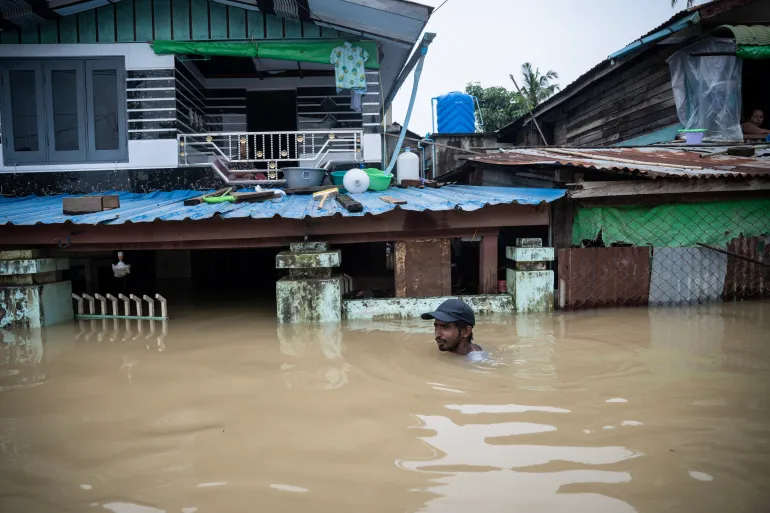Civil society groups working on Myanmar have criticised United Nations relief chief Martin Griffiths over his recent trip to the country, saying his visit failed to make substantial progress on humanitarian assistance and lent legitimacy to coup leaders who had “weaponized aid,” according to Al Jazeera.
Griffiths, the UN’s undersecretary-general for humanitarian affairs and emergency relief coordinator, travelled to Naypyidaw last week where he was pictured on the front page of the state-run Global New Light of Myanmar in a handshake with army chief Senior General Min Aung Hlaing who led the military’s February 2021 power grab.
During the three-day trip, Griffiths also visited a camp for displaced Rohingya and a village near Sittwe in the northwestern state of Rakhine, which was devastated by Cyclone Mocha three months ago. The UN relief chief’s visit also took place as flooding and landslides caused by monsoon rains left at least five people dead in the Bago region between Naypyidaw and Yangon, the country’s biggest city.
In a joint statement shared by Progressive Voice, the 514 civil society groups acknowledged Griffiths’s post-visit call for “space for safe, sustained aid deliveries”, but said that could not be achieved by working with the military, which has been accused of preventing assistance from reaching those most in need, particularly as a result of the deepening conflict triggered by its coup.
“Principled humanitarian engagement must see OCHA (Office for the Coordination of Humanitarian Affairs) and other UN humanitarian agencies cut ties with the illegal criminal junta which is weaponizing aid and is the root cause of human suffering in Myanmar,” the civil society groups said.
Myanmar was plunged into crisis by the coup as the generals cracked down violently on opposition to their power grab. Some have taken up arms in a bid to restore civilian rule, joining forces with ethnic armed groups that have been fighting the military for decades, while the National Unity Government (NUG) of deposed MPs and others has sought to secure international recognition.
In July, UN human rights chief Volker Turk said the military was engaged in a “systematic denial” of humanitarian relief to the millions of civilians in need of help, establishing legal, financial and bureaucratic barriers to prevent people from receiving or even accessing assistance.
Earlier this month, the Independent Investigative Mechanism for Myanmar (IIMM) said war crimes committed by Myanmar’s military, including mass executions and sexual violence, had become “increasingly frequent and brazen”.
In a statement after his trip, Griffiths noted successive crises had left a third of Myanmar’s population in need of aid and appealed to the military to improve access to humanitarian relief. He reiterated that call in a video shared on X, formerly known as Twitter, on Wednesday.
Filmed in Sittwe, Griffiths talked of the “great tragedy” that had taken place and appealed for assistance, and peace so that people could begin to rebuild their lives.
“We need better access so we can help them daily, every day, every week, safely and securely,” Griffiths said.
Progressive Voice noted that as a result of the conflict, hundreds of thousands of people in northwestern, central, and southeastern Myanmar had been forced from their homes and were in need of assistance.
It said the military, which was waging a “systematic campaign of arson, military offensives, extrajudicial killings, and aerial attacks on civilians”, was the cause of much of the humanitarian suffering.
Given the situation, the UN should be engaging with the NUG, ethnic organisations that control many parts of the country and civil society groups to deliver aid, Progressive Voice said.
“Such stakeholders have the access, legitimacy, capacity and, most importantly, trust from the people that the junta simply lacks,” the statement said.









